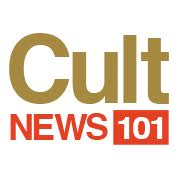Tampa Bay Times
Daniel Ruth
November 12, 2014
Until a few years ago, about the only thing most Americans knew about the Church of Jesus Christ of Latter-day Saints was that they had one darn fine Mormon Tabernacle Choir. Other than that, there was the mystery underwear thing. And yes, the long-ago legacy of polygamy.Daniel Ruth
November 12, 2014
But as Mitt Romney emerged to capture the Republican presidential nomination in 2012, interest increased about Mormonism. And a lot of it wasn't pretty, including not too subtle grumbling during the campaign that the former Massachusetts governor somehow wasn't truly conservative enough to lead his party, which was really little more than a trumped-up euphemism that he wasn't Christian enough.
The church hardly helped itself in rebutting misconceptions about what it means to be a Mormon, maintaining a shroud of secrecy about its most closely held scriptures, its inner workings, its opaque councils — and its muddled history.
But more recently that hesitancy to be more forthcoming has slowly begun to melt, aided by Romney's national prominence. So too, did the arrival of the HBO series Big Love, about a mainstream businessman who secretly still practiced polygamy, having grown up in a Morman sect that did so. And most certainly the Broadway blockbuster The Book of Mormon, a hilariously funny, profane skewering of the faith, brought the LDS front and center into the nation's consciousness.
Now comes an effort by the church to open up about its past with a series of essays on the LDS website frankly discussing some of the more checkered aspects of its history. The latest entry formally acknowledged for the first time that the church's founder and revered prophet Joseph Smith may have taken as many as 40 wives (imagine remembering all those anniversary dates), including some who may have already been married, as well as one bride who was only 14 years old.
Why the harsh self-examination now? "It's a recognition of maturity," Richard Bushman of Columbia University told the New York Times. "There are lots of church leaders who say: 'We can take anything, just let us know what really happened. We're a church that is secure.' " How … refreshing.
Here in Tampa Bay we have our own religious group that has been so tight-lipped over the decades it makes the LDS look more accessible than a Costco membership.
The Church of Scientology has been operating in Clearwater for decades, rarely explaining itself and going after its detractors with an unrelenting vengeance.
Two controversial religious organizations. One has used the tools of public relations to rebrand its image in a positive, candid manner. The other, also burdened with a reputation for strangeness, continues to rely on propaganda fueled by secrecy and intimidation. Who is likelier to draw more converts? Or at least a better understanding?
What Scientology and Mormonism do share is a looming presence in their respective centers of operation — Clearwater and Salt Lake City. Both organizations have been the subject of intense scrutiny and yes, criticism. Yet in an effort to become better understood and accepted, the Mormons have made the savvy decision to directly address questions about the church, even if it exposes some of the darker episodes of LDS history.
There's a lesson there in accountability if anyone in Clearwater would bother to listen.
Scientology remains entrenched as an unresponsive, arrogant, obstructionist bully into the civic affairs of Clearwater, its aloof leader David Miscavige hidden away behind a phalanx of apparatchiks, apologists and lawyers, always lawyers.
Or consider this theoretical scenario. When The Book of Mormon began its run on Broadway and eventually became a hot ticket around the country, the LDS leadership could have gone on the offensive attacking the play for being a crude and blasphemous rendering of a faith practiced by more than 15 million people around the world.
Mormons could have picketed theaters and boycotted supporters of the production. But none of that happened. Instead, friendly Mormons showed up at theaters handing out literature that said: "If you're going to see the musical, you should also read the book." This was a religion with a sense of humor.
Now imagine a production of The Book of Scientology, which would more than likely result in the sect's private detectives building dossiers on the cast and crew, a dark propaganda campaign against the producers and threats of lawsuits.
And that's a pity. After all, don't you suspect The Book of Scientology would be even funnier?
http://www.tampabay.com/opinion/columns/ruth-public-relations-schism-mormons-and-scientologists/2206196
